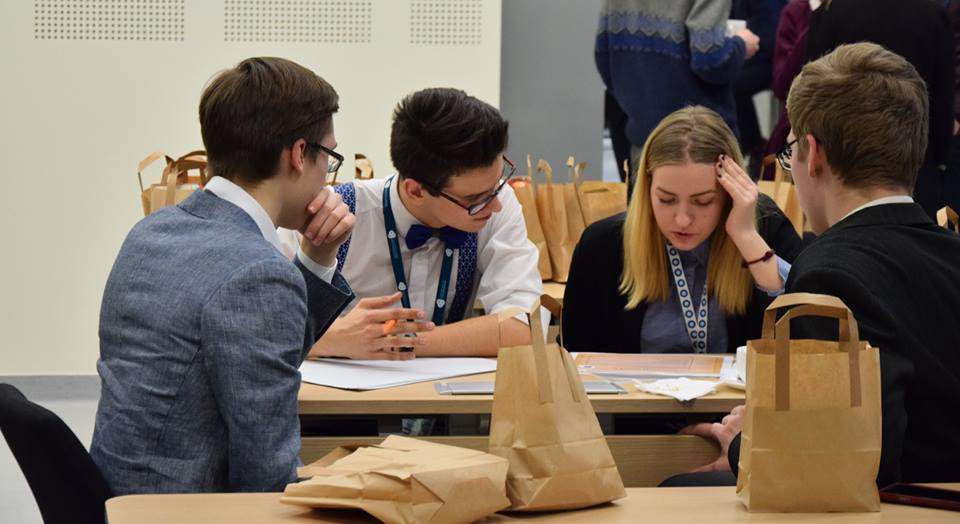Traditionally, there have been few technology startups in the logistics sector, which relies heavily on capital-intensive assets like ships, trucks, and airplanes. Technological innovations, however, are dramatically shaping global business and the transport and logistics industry should not be left behind. Recent statistics show record levels of investment in logistics-focused technology startups during 2016, which implies a heightened demand for the freight forwarding segment to modernize.
“It is time to bring the mindset and technology we use to manage logistics processes into the 21st century. There is growing pressure for supply chains to be better, faster, and more connected, which has resulted in more technology startups focused on solving logistics-related problems. We see huge potential in the space – over $19 trillion dollars of goods are shipped around the world annually and the forwarding market alone is worth $160 billion dollars a year. By adopting operational innovations we could reduce scheduling and fuel-consumption inefficiencies and boost profit margins with eco-friendly supply chain management”, predicts Agnė Bešėnienė, logistics market expert at “AsstrA Forwarding AG”.
The demand for innovation grows
Automation, “appification” and big data are increasingly important factors in global supply chains, and startups capitalizing on the associated opportunities are attracting increased investor interest, suggests Agnė Bešėnienė. Today’s major global freight forwarding players will face significant market share losses unless they adopt new technologies.
“In the Internet age, moving cargo shipments is not an easy task. Freight forwarders play a key role in global trade, with deliveries made via trains, planes, ships and trucks. The industry, however, often relies on outdated technology like telephones or emailed spreadsheets. Operational processes, pricing platforms, and cargo tracking systems could all be modernized to fulfill customers’ expectations faster and cheaper. At AsstrA, we experience the changing logistics landscape firsthand – and now embrace it by investing in smart technologies and supporting young entrepreneurs,” continues Agnė Bešėnienė.
Sustainability is a key driver of transport modernization
“Futurepreneurs” will help young people generate business ideas in promising or novel fields such as fintech, information technology, defense, security, and logistics. Accordingly, “AsstrA” is supporting the Transport and Logistics component of “Futurepreneurs”. On the 3rd of May, all startup teams will pitch their business ideas to competent judges and investors. The best startup in the Transport and Logistics sector will receive an investment for business development and, as a special prize from “AsstrA’s” Vilnius office, an invitation to join a 2-day international training for mid-senior level transport managers.
“At AsstrA, we believe that sustainability plays a key role in the future of the transport business. All the technology we need to modernize the logistics industry – from hardware to software – is already there. Somebody just needs to find a way to combine it. Now it is time for creative minds to create sustainable, innovative solutions to existing logistics problems. We believe that joining business with science is the best and fastest way to bring about a technological revolution in the supply chain industry. Who knows, maybe the next Elon Musk will be discovered during “Futurepreneurs”? Brave ideas are a recipe for great changes. Our job is to put those ideas into action,” says Bešėnienė, who is a “Futurepreneurs” mentor for Transport and Logistics businesses.
“Transport and logistics companies have faced the same dilemma for many years – how to improve their bottom line by lowering fuel consumption. Poor fuel economy can be caused by many factors such as an old fleet, a lack of maintenance scheduling, or cheap spare parts. The problem could be solved with a number of approaches, including new equipment, fuel theft deterrents, fuel additives for long rides, or more fuel-efficient spare parts,” says Agnė Bešėnienė.
“AsstrA’s” advice for young entrepreneurs is to seek solutions for transport companies that optimize fuel consumption and reduce expenses related to repair and maintenance. So young entrepreneurs are about to solve the major logistics challenges.
Read the full article here: http://bit.ly/2ndBR9n
